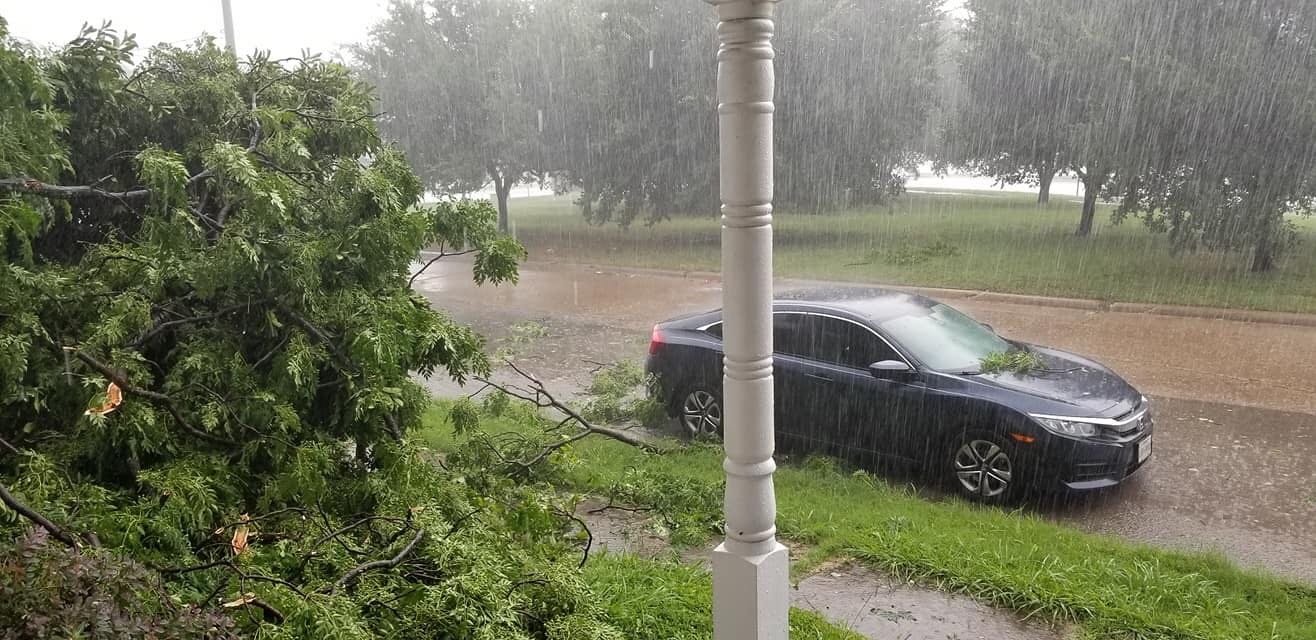
Due to a natural disaster, over 350,000 Dallas residents lost electricity on June 9. A powerful storm blew in around 1:30 PM, downing power lines, uprooting trees and causing accidents. The storm itself only lasted 15 minutes with wind gusts initially clocked at over 71 miles per hour (later investigation may increase that estimate.) As of the writing of this article, some 15,000 people are still without power and can expect to be into the end of this week, according to Oncor Electric Delivery, Texas’ largest electric provider company. The remaining problems are reported to be the most complex ones, with entire infrastructure-rebuilding and major tree removal required to restore power. About 2,500 additional workers from 11 surrounding states have joined in the efforts to repair damages, working 16 hour shifts.
In a capitalist society, the impact of a “natural” disaster is anything but, reflecting instead the inequality, inefficiency and inhumanity of a system based on profit. This can be seen in the way that working people have been affected by this storm and the power outages it has created.
Places of work have been impacted, contributing to a lack of income for many who could not make it into work due to the outage or due to prolonged work closures. For many families, food spoilage has also been a major concern as days without power stretched beyond what a refrigerator or freezer could maintain without electricity. Some families are losing hundreds of dollars worth of groceries.
In downtown Dallas, over 530 residents at the Elan City Lights apartment building have been displaced as a result of a nearby construction crane that crashed into the building, killing one woman and injuring six others. Cars from the parking garage are not safe to access and the building has been deemed entirely unlivable. The crane itself has yet to be removed from the building and an investigation into the accident could take OSHA six months to complete.
Emergency sirens did not sound in the city proper because of a technicality. As of the time of the storm, criteria for sounding the city-wide emergency sirens were that 70 mph winds had to be continuous, as opposed to the gusts of winds that wreaked havoc and are estimated to have cost the city millions in damage repair. Those criteria are expected to change in response to this weather event.
There have always been storms, and major weather-related disasters will continue to worsen as climate change unfolds in the future. Socialist countries like Cuba have disaster preparedness measures in place to ensure that those affected by severe weather are provided for. Their model for emergency response is centralized and widespread. The time to build a socialist system that can meet the needs of people dealing with sudden disaster is now! Under capitalism, people will continue to suffer needlessly as a result of poor infrastructure planning and lack of adequate emergency response. We need a new system that can provide for society. We need socialism!





